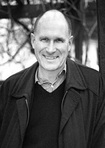Reading Zia Haider Rahman
I’ve just finished Zia Haider Rahman’s acclaimed new novel ‘In the Light of What We know’: in itself an unusual statement for me to make. My regular experience is that I begin a new novel and give up after about fifty pages. When asked why, I tend to say, ‘I didn’t believe it.’ This is an odd demand to make of a novel, and I’m not sure I quite understand it, but I think what I mean is that I require any book that makes serious claims to convince me of its writer’s authority. Again and again, as I read I see the tricks used to cover up real knowledge, to generate the illusion of cleverness or depth. It’s as if I can smell the author’s need to pose for me, just as when someone who talks too much you sense all he’s saying is: please respect me. But here is a book that from the first few pages gripped me. I knew I wanted to be in the presence of this writer’s mind. And so I read to the end, and read fast.
There’s no real story, and no real characters. There’s a sort of play at creating plot tension, all smoked about with portentous intimations of grand crises, but it’s fairly childish. Near the end there’s a flurry of activity that tries to generate the twists of a spy novel, but his heart’s not in it. The big reveal reveals nothing much, and is lost in the endless digressions. Moreover, with almost pitiful earnestness, the writer bombards the reader with profundities from great minds of the past, some in the epigrams that begin each chapter, some in anecdotes as the pages turn, all crying out: see! I’m a polymath! I’ve read Montaigne, and Godel, and Calvino, and Brodsky, and St Augustine, and Somerset Maugham! I understand high finance, and Islam, and international development, and mathematics, and class war, and literature! So a feast for the autodidact, for the kind of reader who needs to be flattered that he is in the presence of a large mind.
Which is me. Through all the foggy misdirection of its construction, I kept reading because on almost every page there was a passage that intrigued me, and made me think something I hadn’t thought before. The book pretends to be an extended conversation between the unnamed narrator and his mysterious friend Zafar. In fact it’s a conversation between Zia Haider Rahman and me, his reader. And that conversation never flags. The journey gets nowhere, but it’s a journey I’ve been delighted to share with him. Is it ‘the first truly great book of the new century’, as one reader claims on the cover? Well, I can’t think of much competition.
One example: the narrator is asked if he knows the Shahadah in English, and replies by citing it: ‘There is no God but Allah and Mohammed is his messenger.’ His answer, he is told, is wrong. A precise translation would be, ‘There is no God but God and Mohammed is his messenger.’ So the wrong translation (this is now me, unpacking the insight) reveals the bias of the colonialists: that ‘God’ and ‘Allah’ are different concepts. By using the word ‘Allah’ in an otherwise all-English sentence the translator encourages the patronising error that Islam worships a local deity, inferior to the one God of Christianity. I find that illuminating in so many ways.
William Nicholson's Blog
- William Nicholson's profile
- 479 followers



